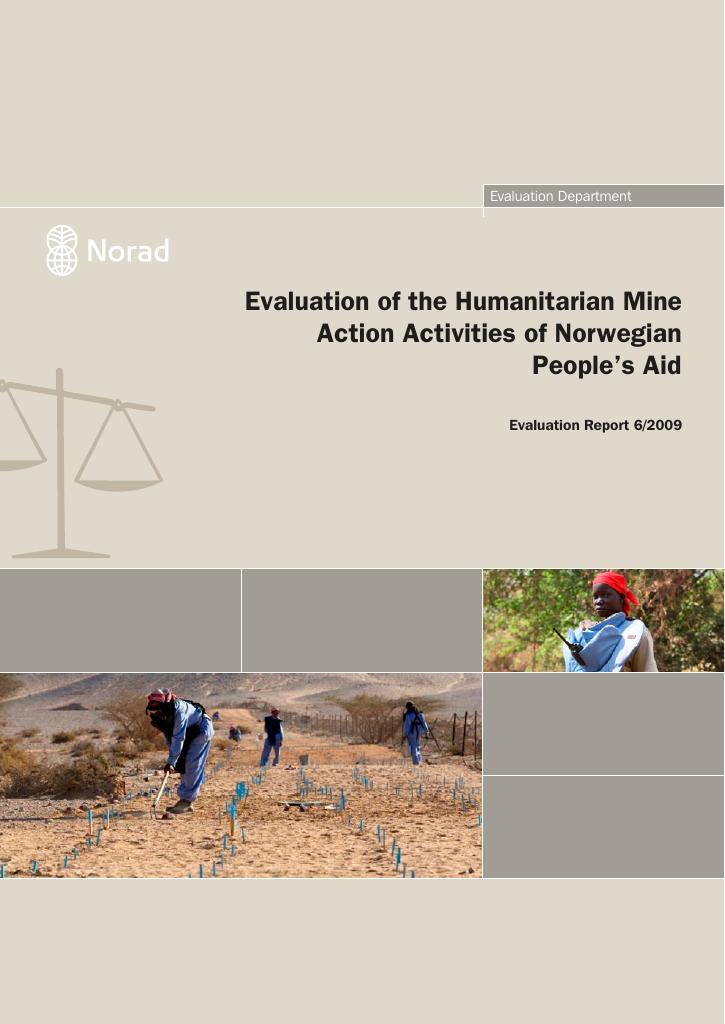Evaluering
Evaluation of the Humanitarian Mine Action Activities of Norwegian People’s Aid
Preface As the Norwegian People’s Aid celebrates its 70 years as a humanitarian relief organisation, it may add a clear success to its achievements. This evaluation report on the humanitarian mine action activities concludes that Norwegian People’s Aid is not only one of the leading worldwide organisations in main action, but it is one of very few organisations that is engaged in operational mine clearance programmes, development of new methodologies as well as advocacy, areas that are mutually reinforcing. The report states that the organisation has “demonstrated world class competency” in refining and improving tools for landmine surveys. It is a leader with regards to integration of different types of demining technologies, but also keen to share its knowledge with others within the mine action community. The objectives set for mine action in programmes that have been studied have in general been achieved. Interestingly enough capacity building – often a weak point in development programmes – is highlighted as an area where objectives have been met. The investment in staff development and concept development are impressive elements of NPA’s programmes, according to the report. This doesn’t mean that everything is perfect and that improvements cannot be made. Questions are being asked about the sustainability of certain achievements, and the evaluation team has also emphasised certain issues related to organisational coherence and programme management that are seen to stand in the way of the full realisation of the organisation’s potential. One particular concern is that socio-economic aspects and skills could be better integrated into the programmes, and the team points at the challenge of establishing coherence between the mine action programmes and the long-term development programmes of Norwegian People’s Aid. The report leaves no doubt that Norwegian People’s Aid has played a unique role in international mine action, and that the close partnership with the Norwegian Government has facilitated such a role. Oslo, December 2009 Asbjørn EidhammerDirector of Evaluation
